News
-
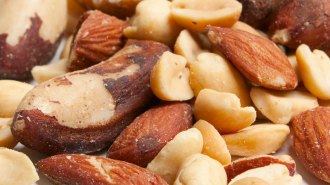 Physics
PhysicsX-ray scans explain how the ‘Brazil nut effect’ works
X-ray CT scans of a box of mixed nuts explain the orientations that let large, oblong Brazil nuts rise to the top.
-
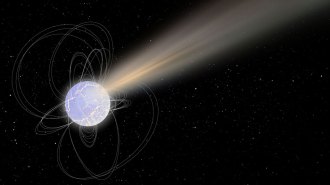 Space
SpaceFast radio bursts could help solve the mystery of the universe’s expansion
Astronomers used fast radio bursts for the first time to measure the Hubble constant in hopes of ending the debate on the universe’s expansion rate.
-
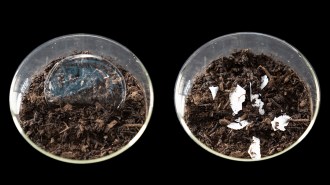 Chemistry
ChemistryA new technique could make some plastic trash compostable at home
Embedding enzymes inside biodegradable plastics makes them truly compostable, which could mitigate the plastic waste problem.
By Carmen Drahl -
 Particle Physics
Particle PhysicsThe already tiny neutrino’s maximum possible mass has shrunk even further
At less than an electron volt, neutrinos are by far the most lightweight massive particles known, a new measurement confirms.
-
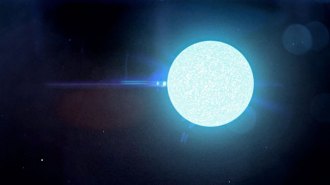 Astronomy
AstronomyNeutron stars may not be as squishy as some scientists thought
NASA’s NICER X-ray telescope finds that the most massive known neutron star has an unexpectedly large diameter.
-
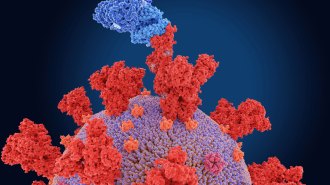 Health & Medicine
Health & MedicineHere’s what we know about B.1.1.7, the U.S.’s dominant coronavirus strain
Studies show the variant is more contagious and may cause more severe COVID-19 overall. But vaccines still work against B.1.1.7.
-
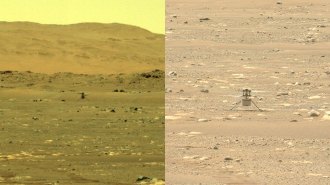 Planetary Science
Planetary ScienceNASA’s Ingenuity helicopter made history by flying on Mars
An autonomous helicopter just lifted itself into the air on Mars, marking the first time a vehicle has flown on a planet other than Earth.
-
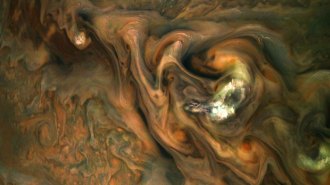 Planetary Science
Planetary ScienceHow the laws of physics constrain the size of alien raindrops
Physics limits the size of raindrops, no matter what they’re made of or what planet they fall on.
-
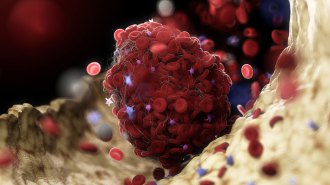 Health & Medicine
Health & MedicinePeople with rare blood clots after a COVID-19 jab share an uncommon immune response
AstraZeneca’s and J&J’s shots are linked to antibodies that spark clots. Knowing that lets doctors ID cases and get patients the right treatment.
-
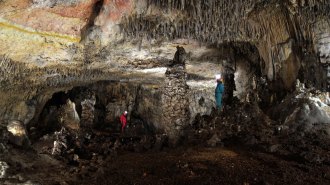 Humans
HumansNeandertal DNA from cave mud shows two waves of migration across Eurasia
Genetic material left behind in sediments reveals new details about how ancient humans once spread across the continent.
-
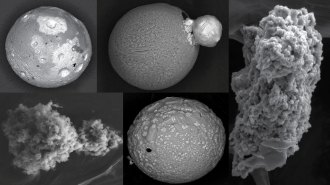 Planetary Science
Planetary ScienceEarth sweeps up 5,200 tons of extraterrestrial dust each year
Thousands of micrometeorites collected from Antarctica come from both comets and asteroids, a new study suggests.
By Sid Perkins -
 Life
LifeOnly 3 percent of Earth’s land hasn’t been marred by humans
A sweeping survey of terrestrial ecosystems finds that vanishingly little land houses all the animals it used to. Species reintroductions could help.